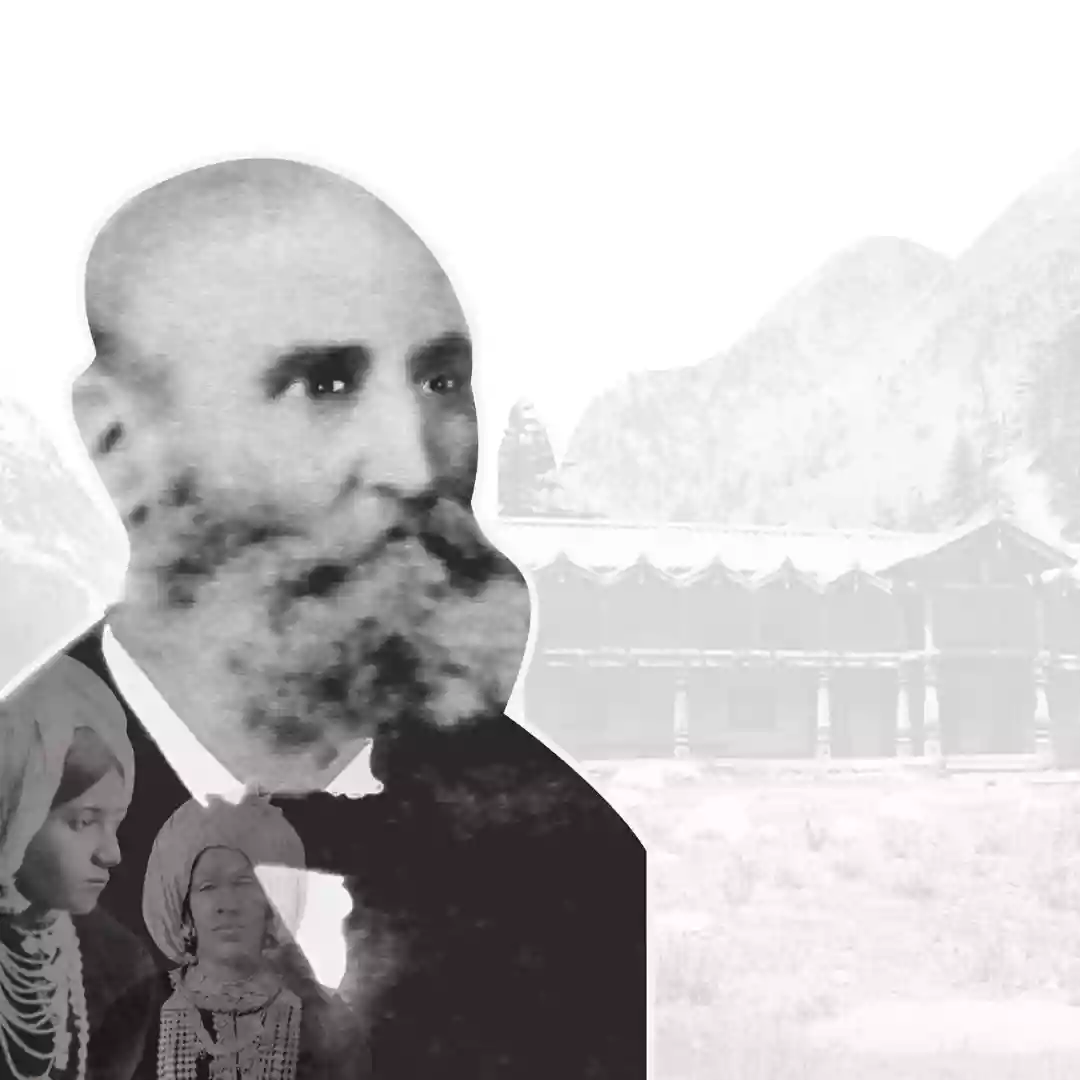In midst of the beautiful valley of Harsil is situated the royal residence of Fredrick E. Wilson, a man who have seemingly molded history for its best. Fredrick E. Wilson was a 24-year-old soldier for the British army that was stationed in Mussoorie, India. Assumingly, he killed a fellow soldier in a duel and fled from Mussoorie to the kingdom of Tehri Garhwal. He after being renounced by the King, came deeper in the mountains and camped in the valley of Hrasil. While the priests considered him as a missionary, the local villagers started accepting him as ‘Gora Babu’. But far from any such titles, Pahadi
Wilson was lured by wealth and fame. So he solely aimed at making money.
Wilson was a self taught botanist and ornithologist. He used his knowledge of tress and animals to build his source of living. He started illegal logging, deforesting trees, killing and hunting of animals for skin. This was the same period when railways were introduced in India and the demand of wood upraised. Eventually, the Britishers looked up to Wilson for the supply Deodar grooves. Pahadi Wilson was now a renowned name in the Lucrative Timber Trade.
Wilson became rich and refined in the trade market and worked alongside the king. He introduced ‘Rajma’ and ‘Apples’ to the region. Many locals adored him for bringing industry in the region and referred to him as the “Raja of Harsil”. He even issued coins, which remained in circulation for decades after his death. Nothing lasts forever and so did ‘Pahari’ Wilson’s fable. The story to his annihilation, says that Lord Someshwar, the regional deity punished and cursed Wilson hunting animals almost to extinction and deforesting the region. The curse was on Wilson’s bloodline and how he will vanish after one generation, leading to his identity being completely forgotten.
‘Pahari’ Wilson died in 1883 and soon two of his three sons died young, while the last known descendant joined the Indian Air Force after World War II and was killed in a plane crash. It seemed that the deity’s curse worked and he was being forgotten by the people at large. He was later revived in the memories of people by journalist Robert Hutchison who published Pahari Wilson’s tale in his book “The Raja of Harsil”.
After the immense amount of cutting and killing for years, several environmentalists like Sunderlal Bahuguna, the leader of Chipko movement. holds Wilson responsible for Garhwal’s ecological troubles. However, even after being cursed and long gone, Wilson has his name imprinted on every single apple of Harsil-a one of its kind, Wilson Apples.


